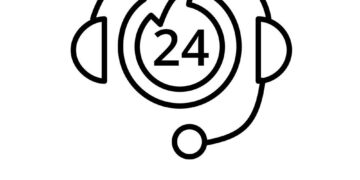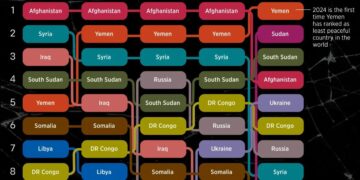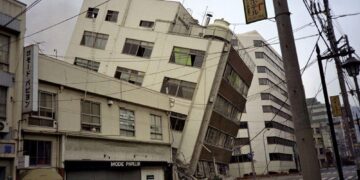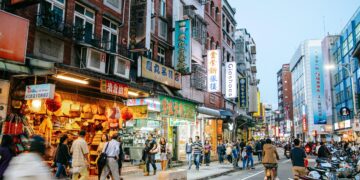Jordan’s Intensified Measures Against the Muslim Brotherhood: Navigating Security and Political Stability
Heightened Security Actions in Jordan: Analyzing the Impact
In recent months, Jordan has significantly escalated its efforts to suppress the Muslim Brotherhood, a prominent political and social force within the country. The government has adopted a multifaceted approach that includes enhanced surveillance operations, detentions of influential Brotherhood members, and stringent restrictions on dissenting media outlets. While these tactics are designed to reinforce state control amid growing regional instability and internal opposition, experts warn that such measures might deepen public dissatisfaction rather than quell it.
The assumption that intensified crackdowns will eliminate opposition overlooks the complex socio-political fabric of Jordanian society. Economic difficulties—such as an unemployment rate hovering around 18% as of early 2024—and widespread feelings of political exclusion have already strained public trust in governance. Consequently, aggressive security policies risk alienating moderate factions and could inadvertently strengthen underground resistance movements.
| Security Tactics | Possible Outcomes |
|---|---|
| Expanded intelligence gathering | Erosion of citizen confidence in authorities |
| Detainment of key Brotherhood figures | Galvanization of opposition networks |
| Censorship and media suppression | Growth of covert activism groups |
The government’s narrative frames these actions as essential for national security; however, many Jordanians perceive them as authoritarian overreach. This divergence fuels debate about whether such heavy-handedness effectively counters extremism or instead cultivates conditions conducive to radicalization.
The Origins Behind Muslim Brotherhood Discontent in Jordanian Society
The crackdown sheds light on longstanding grievances harbored by segments within Jordan’s population who feel sidelined politically and economically. Key factors driving support for the Muslim Brotherhood include:
- Political Suppression: Restrictions on free expression and political participation have created an atmosphere where dissent is often met with punitive responses.
- Sociodemographic Pressures: Persistent unemployment rates exceeding regional averages combined with inflationary pressures intensify societal frustrations.
- Lack of Political Inclusion:> Many citizens believe their voices are absent from decision-making processes, prompting alignment with Islamist groups promising representation for marginalized communities.
<
>
<
>The government’s stringent policies may unintentionally validate narratives portraying the Brotherhood as victims of state oppression—a dynamic that can rally sympathy across diverse demographics. This paradox highlights how attempts at suppression might amplify resistance rather than diminish it.
>
Balancing National Security With Civil Rights: Pathways Forward< / h2 >
As Amman tightens its grip on Islamist factions like the Muslim Brotherhood , maintaining equilibrium between safeguarding stability and upholding civil liberties becomes increasingly vital . To navigate this delicate terrain , policymakers should consider adopting comprehensive strategies :
- < b >Constructive Engagement :< / b > Opening dialogue channels with opposition entities can build mutual understanding , reduce hostilities , and foster inclusive governance .< / li >
- < b >Transparent Legal Standards :< / b > Defining clear legal boundaries regarding counter-extremism efforts ensures accountability while protecting fundamental rights .< / li >
- < b >Grassroots Involvement :< / b > Empowering local communities through participatory security initiatives encourages cooperation between citizens and authorities .< / li >
- < b >Judicial Independence :< / b > Strengthening oversight mechanisms via impartial courts helps prevent abuses stemming from unchecked executive power .< / li >
An informed approach requires continuous monitoring of public opinion indicators such as community apprehension toward enforcement measures or perceptions among disenfranchised groups regarding fairness :
. . . . . . . . . . . . . . . . . . . . . . . . . . . . . . . . . . . . . . . . $ $ $ $ $ $ $ $ $ $ $ $ $ $ $ $ $ $ $ $ - - - - - - - - - - - - - - - - - - - -< th >Public Sentiment Signals< th >Recommended Government Responses < td >Widespread unease about intensified policing< td >Expand community policing programs ; organize town hall meetings to address concerns < td >/Perceived marginalization by certain demographics/< td >/Launch outreach campaigns incorporating diverse societal voices into policymaking/ < td />Resistance fueled by fears over authoritarianism Promote messaging emphasizing democratic values & freedoms Main Insights & Future Outlook
The ongoing clampdown against the Muslim Brotherhood encapsulates a complex challenge facing Jordan — balancing urgent security imperatives against preserving democratic space amid socioeconomic strains. While officials maintain these steps are crucial for national order amidst volatile regional dynamics including spillover effects from neighboring conflicts, critics caution heavy-handed tactics risk deepening divisions rather than healing them..
The trajectory ahead depends largely on Amman’s ability to reconcile firm governance with respect for civil liberties — fostering dialogue without compromising security — thereby shaping whether these interventions consolidate state authority or sow seeds for future discord among its populace.
This pivotal moment demands nuanced policy calibrated not only toward immediate threats but also long-term social cohesion within one of the Middle East’s most geopolitically sensitive nations.














